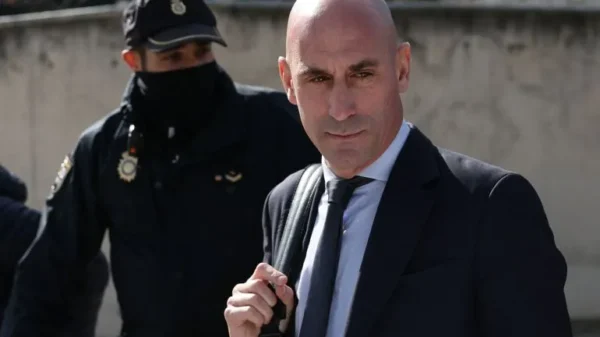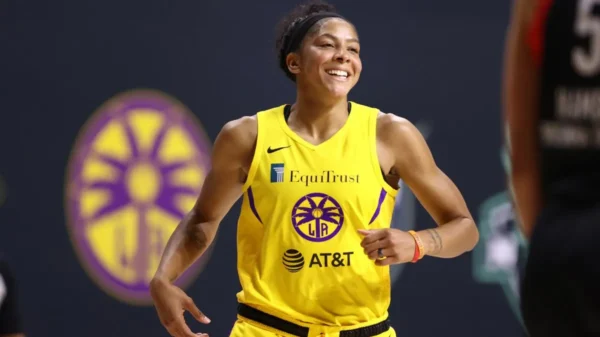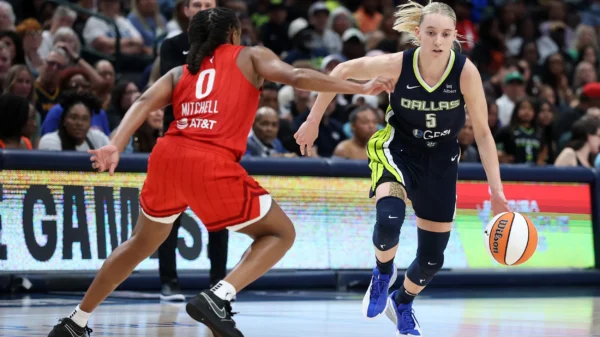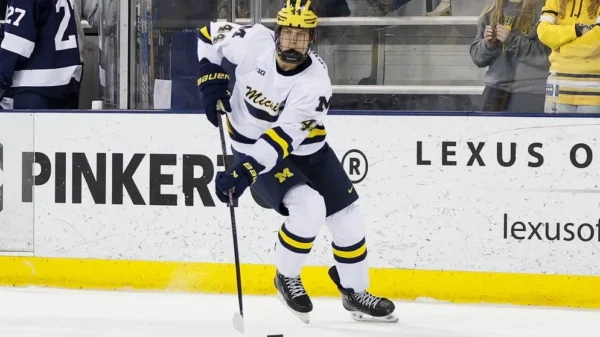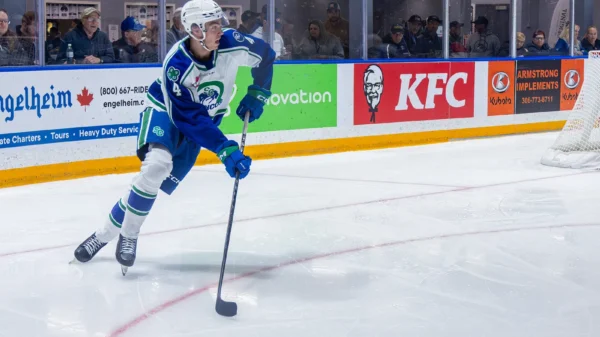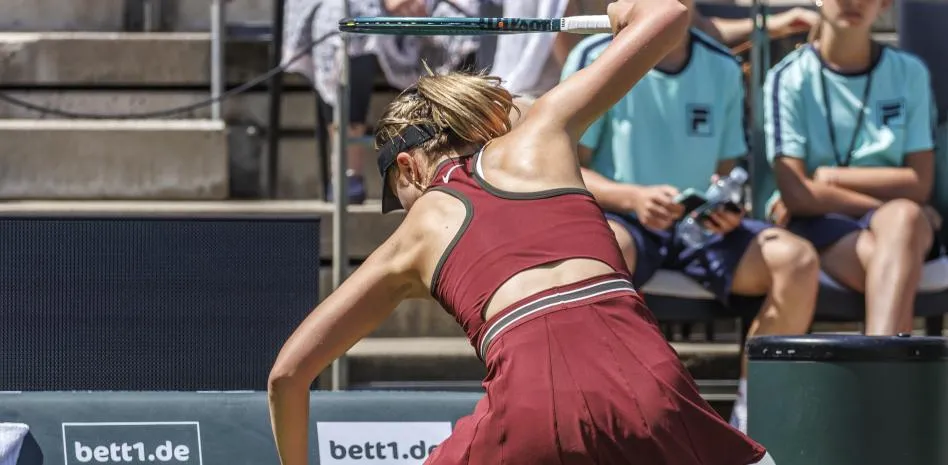Paula Badosa’s Journey Through Injury Recovery: A Comprehensive Overview
Spain’s Paula Badosa left the WTA grass court tournament in Berlin by smashing her racket four times on the ground and then throwing it. Pure frustration. Another physical problem disrupts her training rhythm just as she is reaching her peak tennis form. Competing at a high level requires not only physical stamina but also mental fortitude. Badosa’s ability to cope with such events is reflective of her strong character and dedication to her sport.
Paula Badosa’s journey has been filled with ups and downs, but her passion for the sport remains unwavering.
In the world of professional sports, injuries can have a significant impact on an athlete’s performance and career trajectory. For Paula Badosa, this has been a consistent challenge. While many fans see her on the court, few understand the extent of her struggles off it. The mental toll of injury can be as substantial as the physical, leading to a rollercoaster of emotions, from frustration to determination.
As Paula Badosa navigates her career, each injury presents a new challenge to overcome.
A semifinalist at the Australian Open, she has never stopped playing well. The chronic injury to her L4 vertebra has repercussions from time to time, affecting her performance. The Catalan missed the clay court tour and was only able to play a small tournament in Strasbourg before suddenly facing Roland Garros. Each withdrawal from a tournament not only affects her ranking but also diminishes her confidence, requiring her to rebuild her mental strength continuously.
Despite these challenges, Paula Badosa is determined to reclaim her spot among the tennis elite.
Having originally started her journey in tennis at a young age, Badosa has faced numerous obstacles. Her determination and resilience have often shone through, allowing her to come back stronger after each setback. The support from her team and fans has also played a crucial role in her recovery process, emphasizing the importance of a strong support system in overcoming athletic challenges.
The support of fans and friends has been vital for Paula Badosa throughout her recovery.
She showed promise but succumbed to Australia’s Daria Kasatkina. After two victories in Berlin, she had to withdraw after one set against China’s Xinyu Wang. This incident serves as a harsh reminder of the fragility of athletic careers. Every match played is a risk, and many athletes like Badosa are well aware of the challenges they face with each competition.
Badosa’s performance in Berlin is a testament to her fighting spirit. Despite facing setbacks, every match she plays contributes to her growth as an athlete. For many athletes, it’s about the journey rather than just the destination. Fans often admire Paula for her grace on the court, but her resilience off the court is equally commendable.
She was unable to compete in the WTA tournament in Bad Homburg this week, but she hopes there will be no setbacks. She aims to step onto Centre Court at Wimbledon on Monday to face Britain’s Katie Boulter in the second match. This match follows the exciting duel between Carlos Alcaraz and Italy’s Fabio Fognini, starting at 2:30 p.m. Spanish mainland time. The atmosphere of Wimbledon is unlike any other, filled with history and prestige, and Badosa hopes to harness that energy.
Fans eagerly anticipate every match Paula Badosa plays at prestigious tournaments like Wimbledon.
As Badosa prepares for her next match, the anticipation builds. Competing at Wimbledon is a highlight of her year, adding a layer of pressure to perform. The tournament is not just about individual success; it’s also about making a mark in tennis history. Badosa understands the weight of expectations, both from herself and her fans.
As she prepares, Paula Badosa knows the importance of her performance at Wimbledon.
Badosa gave her latest medical report on the injury she suffered in Berlin. “A small tear in the psoas, so I haven’t been able to train as much as I would have liked. We’ll see how it responds in competition, with all the tension and everything that comes with playing a tournament,” she said. The small tears and strains can often go unnoticed by fans, but they require careful management to avoid long-term damage.
Paula Badosa emphasizes the need for careful management of her injuries.
Injuries are a part of sports, and athletes learn to adapt. Badosa’s determination to return to the court showcases her commitment. As she navigates her recovery, she continuously evaluates her training regimen, seeking the right balance between pushing her limits and allowing her body to heal. Every decision made during this period could impact her future performance.
She stopped all the work she had been doing. “I’m much better physically than I was in Paris, where I was slower. It was noticeable in Berlin, but then the psoas injury happened. We’ll have to see how I respond in competition,” she warned. Badosa’s journey is not just about physical recovery; it’s about reclaiming her place among the best in the sport.
With every setback, Paula Badosa grows stronger and more determined.
The mental aspect of recovery cannot be overlooked. Athletes like Badosa often engage in mental training to prepare themselves for the challenges that lie ahead. Visualization techniques, positive affirmations, and meditation are just a few strategies employed to enhance focus and build confidence.
Her best result at Wimbledon is the round of 16. “My game suits grass well, I’ve always felt comfortable,” says Paula Badosa, who, after this match, will have to defend the excellent results she achieved in the summer of 2024, when she took off after a six-month break due to a back injury. The grass season presents unique challenges, and adapting to the surface is crucial for performance.
Paula Badosa looks forward to showcasing her skills on grass.
Success in sports often comes with immense pressure. Badosa reflects on her past experiences and draws strength from them. The round of 16 at Wimbledon is not just a number; it represents her growth as an athlete. The lessons learned through each tournament have shaped her game style and strategy.
She has been testing herself at the All England Club, with sessions that have included working with one of her best friends on the circuit, Tunisia’s Ons Jabeur, who is in the process of recovering her tennis after a serious shoulder problem. The bond between players can be vital during recovery, as they share experiences and support each other through their journeys.
The camaraderie among players like Paula Badosa and Ons Jabeur is crucial during recovery.
Preparation for a major tournament like Wimbledon involves rigorous training and strategy sessions. Badosa has been known to analyze her opponents meticulously, studying their playing styles to identify weaknesses she can exploit. Such dedication exemplifies what it means to be a professional athlete.


